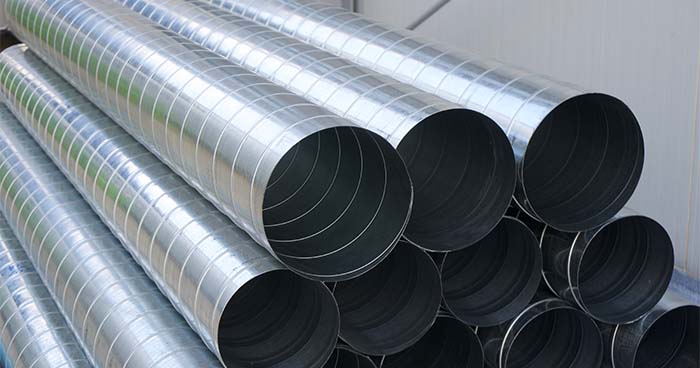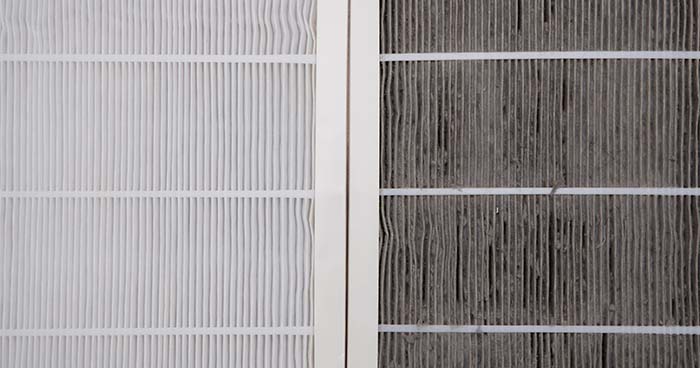Why the Air Conditioner May Give You a Sore Throat
07/27/22

When the summer heat and humidity come on, there’s no better place to be than in your cool, air conditioned home. During the summer, you’re probably running your air conditioning nonstop. While this keeps everyone comfortable and safe in the heat, it can have a few negative effects.
Do you suffer from sore throats or dry sinuses when you have your air conditioner running? If so, you’re not alone. Air conditioning is a modern marvel, but it does have drying effects on the air, and by extension, your throat and sinuses.
Generally, the sore throat and irritation that comes from air conditioning is mild, but if you find that you have frequent sore throats or respiratory infections, there could be a problem with your air conditioning. Here’s what you need to know.
Why Do I Have a Sore Throat?
Air conditioners are designed to take the moisture (humidity) out of a room and exchange the hot air inside to the outside, recycling cool air. Your home won’t feel hot and muggy, but it does have the unfortunate downside of making the air excessively dry.

Over time, this may cause symptoms like:
- A dry throat or mouth
- Sinusitis
- Eye or skin itching and irritation
- Nosebleeds
These symptoms may be worse in people with indoor allergies or pre-existing health conditions. Sometimes, the problem is caused by an improperly used air conditioner, however, rather than the air conditioner itself.
Bad AC Installation
An improperly installed air conditioner can’t circulate air properly. Certain areas of the system become stagnant, harboring mold and bacteria that can irritate your nose, throat, and lungs. When you have an air conditioner installed, it’s important to work with a qualified HVAC technician rather than doing it yourself. A technician will also make sure that your air conditioning is the appropriate size and capacity for your home’s size and features.
Cracked or Broken Ductwork
Damaged ductwork can be a surprising cause of poor indoor air quality. If your ductwork has damage or cracks, even small ones, contaminants like dust and dander can make their way in. They bypass the air filter and end up back in your home, flaring issues like respiratory irritation, sore throats, and sinus troubles.

Lack of AC Maintenance
Air conditioning systems need routine maintenance from qualified HVAC contractors to keep them running their best. When your system isn’t well maintained, you can have problems like bacteria or mold that compromise your indoor air quality. On your own, you can replace your air filters and keep them clean, but you should still invest in routine maintenance from a qualified technician.
Closed Vent Control
A closed vent is a common cause of air quality issues. If you’re operating your air conditioner with the vent control closed, it can’t exchange the indoor and outdoor air properly. This can cause buildup of mold or bacteria in some areas, leading to issues with your respiratory health. Always keep the vent control open when operating your air conditioner.

Even with proper use, air conditioners dry the air and may cause irritation in your throat or sinuses. But these problems are present with air conditioners used outside of their normal operation, and it’s important to address them to enjoy optimal air quality.
What You Can Do If the Air Conditioner Is Giving You a Sore Throat
The first step in improving your air conditioning is scheduling maintenance. If your air conditioner isn’t installed correctly, this is an opportunity to correct the problem.
Otherwise, there are some things you can do to reduce irritation or discomfort from the dry air in your home.
- Stay hydrated, no matter the time of year. It’s important to drink a lot of water during the hot, humid months as well, since you lose more fluid through sweat. You should also drink plenty of water if you’re in low-humidity environments, such as an air conditioned home or office.
- Put your air conditioner on economy mode to give it a break and allow your air to return to its normal moisture levels, instead of running it all the time. You could also try turning your air off when you leave your home, as long as you don’t have any pets or other family members that can’t be in the heat.
- Clean and replace your air filters regularly, especially if you live in a dusty area or you have pets. These environmental contaminants can build up in your air filters and takes a toll on the system, not to mention the irritation for your throat.

- Spend time outside. Fresh air goes a long way toward your health and combatting the effects of dry air.
If you’re looking for air conditioner repairs, installation, or maintenance, contact HELP to schedule an appointment!
Posted in:




